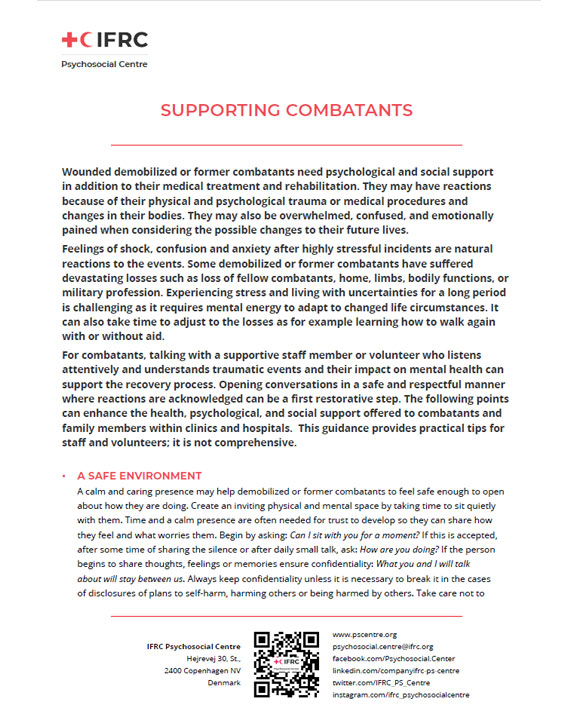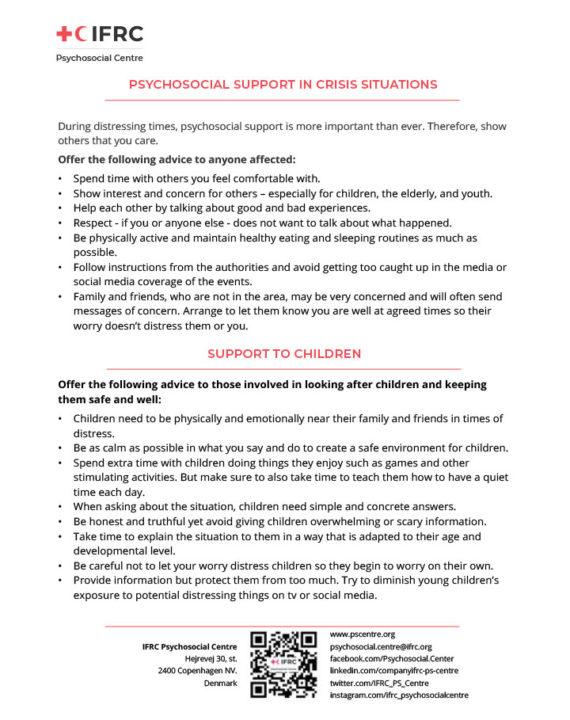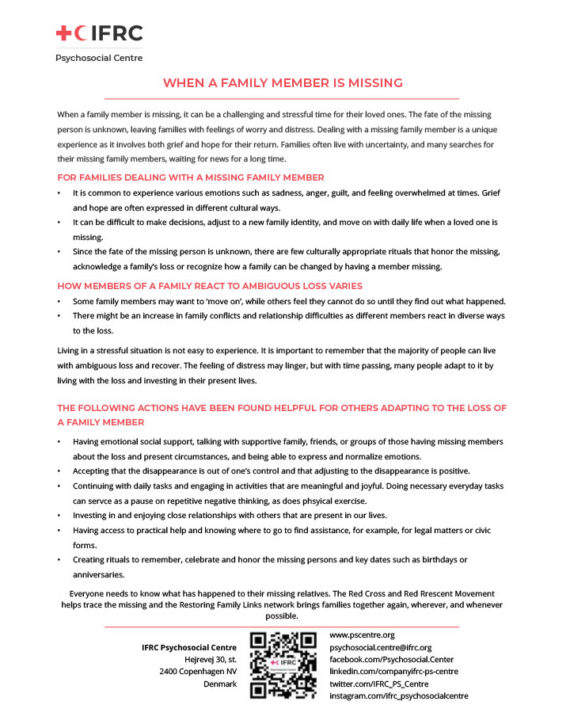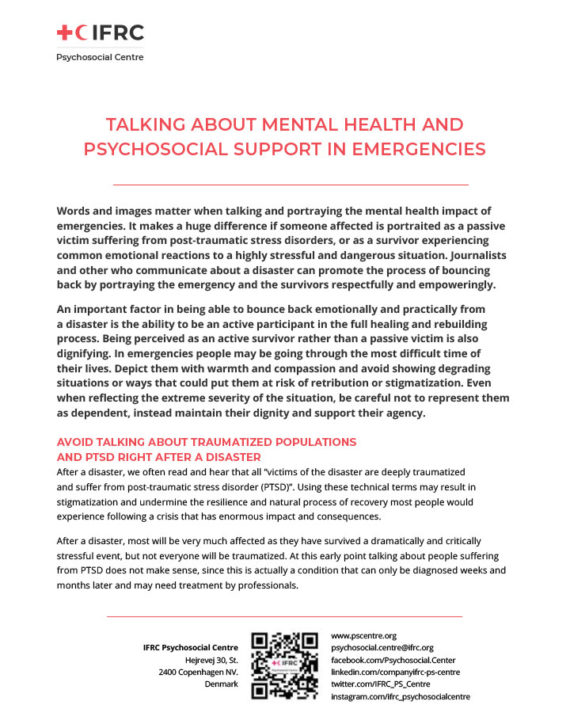Wounded demobilized or former combatants need psychological and social support in addition to their medical treatment and rehabilitation. They may have reactions because of their physical and psychological trauma or medical procedures and changes in their bodies. They may also be overwhelmed, confused, and emotionally pained when considering the possible changes to their future lives.
For combatants, talking with a supportive staff member or volunteer who listens attentively and understands traumatic events and their impact on mental health can support the recovery process.
This publication was developed upon requests from IFRC National Societies in the context of the armed conflict in Ukraine. While the content is relevant beyond that context, the specific wording does not necessarily reflect the dynamics across all international conflicts involving state and non-state actors.





